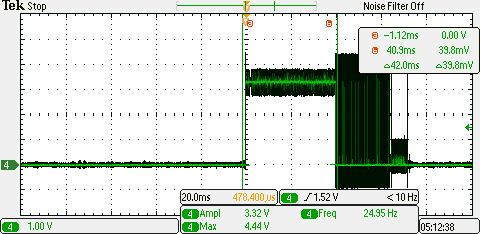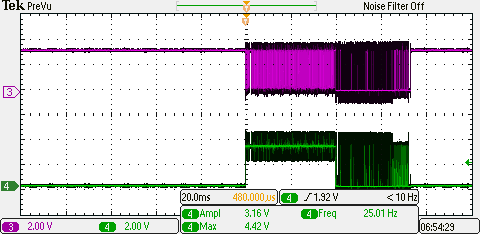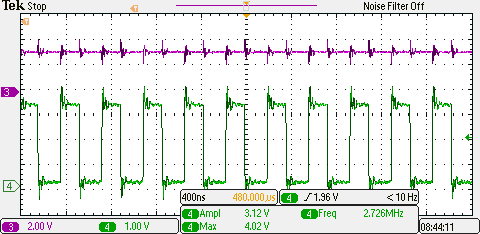I am having trouble getting a custom cc1310 board to connect via cJTAG for flash programing.
Chip is new never before programmed. We have 2 custom boards to do a collector/sensor with our extra I/Os. Both board have the same trouble but are of similar design.
Pins assignment are the same as i had set up and working in LauchPad.
I am using the debugger on the lauchpad (XDS110) and have jumpered over to our
TCK,TMS,TDI,TDO,GRN, & VDD-ref to center of v source jumper on lauchpad.
We can measure 3V out of the dc/dc intrnal regulator. I assume this means chip is powered and grounded(can't see under chip).
We did have ESD/levelers on the JTAG lines as in the launchpad, but have removed and tried without(same results). The only other thing in the JTAG circuit is the traces.
CCS
Error connecting to the target:
(Error -242 @ 0x0)
A router subpath could not be accessed.
The board configuration file is probably incorrect.
(Emulation package 7.0.100.1)
RF-Flash prog2 giving (using primarly 2 pin cJTAG setting, but tried 4 pin too)
- unknown device (Debugger is recognized but not chip)
forced mas erase fails with :
>Initiate access to target: XDS-L2000GPR.
>Create XBAL object failed: Target connect failed
>Failed to create device object.
Are ther anymore checks that can be made to confirm CPU is running?
Once I do get it to connect do I used the .hex or .out file from the project to send?
Below are some captures of the TCK & TMS during connect attempts. Our board does seem to have more overshoot / oscilation stabilizing new level, but not sure if it is enough to make a difference.
TMS ( at different time sample rates)
TCK(left), TCK(pruple) & TMS(green) (right image)
Any suggestions on where to go next? Please..





